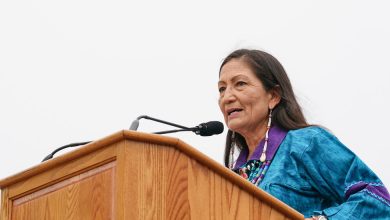How the Israel-Hamas War Has Roiled TikTok Internally

When Barak Herscowitz joined TikTok two years ago in the company’s Tel Aviv office, his role was to recruit Israeli government agencies and other public-sector groups to join the video service and take advantage of its popularity. His pitch: TikTok was a powerful communication tool and getting more influential in the country by the day.
But Mr. Herscowitz, 38, an Israeli who had worked for the country’s conservative former prime minister, Naftali Bennett, and has at times criticized Palestinians on the social network X, grew disenchanted with the company after the start of the Israel-Hamas war in October.
His frustrations stemmed from seeing some employees express anti-Israel views in an internal group chat, and what he perceived to be a double standard in how the company approved ads that referred to the war, he said in an interview. And he was not satisfied with the response from the company when he raised those concerns.
By the end of January, he quit.
TikTok has been dogged for months by accusations that its app has shown a disproportionate amount of pro-Palestinian and antisemitic content to users of its hugely popular video platform. TikTok has strongly rejected those arguments, and its executives have met multiple times with Jewish groups to discuss those concerns. But the claims of bias have nevertheless helped fuel the debate over a House bill passed this month that would force TikTok’s Chinese owner, ByteDance, to sell the app or have it face a ban.
Mr. Herscowitz’s experience, as well as interviews with four current employees at TikTok and dozens of screenshots of internal conversations, points to how some of those same currents of discontent have roiled TikTok internally. Mr. Herscowitz alluded to some of those concerns in a post on X right after he left, and his departure was brought up that week in a Senate hearing with social media executives, including TikTok’s chief executive, Shou Chew.



